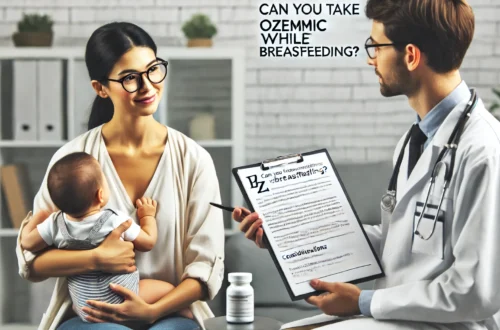Vitamin C, a powerful antioxidant, plays a crucial role in reproductive health and can be a game-changer for women with Polycystic Ovary Syndrome (PCOS). PCOS is often associated with hormonal imbalances, inflammation, and fertility challenges, all of which Vitamin C can help address. In this article, we’ll explore the benefits of Vitamin C for PCOS-related fertility, how to incorporate it into your diet, and the best ways to enhance its effects.
Understanding Vitamin C
Vitamin C, also known as ascorbic acid, is a water-soluble vitamin essential for various bodily functions. Known primarily for boosting the immune system, Vitamin C also:
- Acts as a powerful antioxidant to fight oxidative stress
- Supports the production of collagen, which is vital for skin, blood vessels, and connective tissues
- Enhances iron absorption, which is essential for women experiencing heavy menstrual bleeding
- Plays a role in hormone regulation and reproductive health
How Vitamin C Supports Fertility in PCOS
- Reduces Oxidative Stress
Women with PCOS often have higher levels of oxidative stress, which can damage cells and negatively impact fertility. Vitamin C neutralizes free radicals, protecting ovarian cells and improving egg quality. Research published on PubMed highlights the role of antioxidants like Vitamin C in reducing oxidative damage and supporting reproductive health. - Regulates Hormones
Hormonal imbalances are a hallmark of PCOS. Vitamin C supports adrenal function, helping to regulate cortisol levels and balance other hormones like estrogen and progesterone, which are essential for ovulation. - Improves Uterine Health
A healthy uterine lining is crucial for embryo implantation. Vitamin C promotes collagen production, which strengthens blood vessels in the uterine lining, improving its quality and thickness. - Enhances Iron Absorption
Women with PCOS often experience heavy or irregular periods, leading to iron deficiency. Vitamin C boosts the absorption of iron from plant-based sources, helping to maintain healthy hemoglobin levels, which are vital for overall reproductive health. - Boosts Immune Function
A strong immune system is essential for combating inflammation, a common issue in PCOS. Vitamin C enhances immunity, reducing inflammation and creating a healthier environment for conception.
Signs You May Need More Vitamin C
While Vitamin C deficiencies are rare in developed countries, women with PCOS may need higher amounts due to increased oxidative stress and inflammation. Signs you may need more Vitamin C include:
- Frequent infections
- Fatigue or low energy
- Slow wound healing
- Dry or rough skin
- Bleeding gums or frequent nosebleeds
Top Food Sources of Vitamin C
Vitamin C is abundant in fruits and vegetables, making it easy to include in your daily diet. Here are some of the best sources:
- Citrus Fruits: Oranges, lemons, limes, and grapefruits
- Berries: Strawberries, blueberries, and raspberries
- Kiwi: A single kiwi provides more than the daily recommended intake of Vitamin C.
- Bell Peppers: Red bell peppers are particularly high in Vitamin C.
- Leafy Greens: Spinach, kale, and Swiss chard
- Tomatoes: Fresh tomatoes and tomato juice are great options.
For a detailed list of Vitamin C-rich foods, visit Healthline’s guide to Vitamin C foods.
Vitamin C Supplements: Do You Need Them?
While most people can get enough Vitamin C from food, supplements can help if you’re not meeting your needs. Here’s what you should know:
- Types of Supplements: Vitamin C is available in tablets, powders, and gummies. Choose a form that suits your lifestyle.
- Dosage: The recommended daily intake for women is 75 mg, but higher amounts (up to 1,000 mg) may be beneficial for managing PCOS-related oxidative stress.
- Safety: Vitamin C is water-soluble, so excess amounts are excreted in urine. However, very high doses can cause stomach upset or diarrhea.
Consult a healthcare provider before starting any supplements, especially if you are pregnant or planning to conceive. For more guidance, visit the Mayo Clinic’s recommendations on Vitamin C supplements.
Combining Vitamin C with Other Nutrients
Vitamin C works synergistically with other nutrients to enhance fertility. Consider combining it with:
- Iron: Vitamin C improves iron absorption from plant-based foods, making it an excellent choice for women with heavy periods.
- Vitamin E: Both are antioxidants that work together to reduce inflammation and protect reproductive cells. Read more about Vitamin E’s benefits for PCOS in our Vitamin E for PCOS article.
- Zinc: Zinc supports egg quality and hormonal balance, enhancing the effects of Vitamin C.
Practical Tips to Increase Vitamin C Intake
- Start Your Day with Citrus: Enjoy a glass of freshly squeezed orange juice or add lemon to your water.
- Snack on Berries: Keep a bowl of strawberries or blueberries for a quick, nutritious snack.
- Add Veggies to Your Meals: Include bell peppers, tomatoes, or spinach in salads, soups, and stir-fries.
- Blend Smoothies: Combine kiwi, kale, and a splash of orange juice for a Vitamin C-packed drink.
- Consider Supplements: If your diet falls short, choose a high-quality Vitamin C supplement to meet your daily needs.
Lifestyle Changes to Complement Vitamin C
While Vitamin C offers significant benefits, it’s most effective when combined with a healthy lifestyle. Here are some tips:
- Maintain a Balanced Diet: Focus on whole foods rich in vitamins and minerals.
- Exercise Regularly: Physical activity improves insulin sensitivity and reduces oxidative stress.
- Manage Stress: Chronic stress can worsen inflammation. Practice yoga, meditation, or deep breathing exercises.
- Get Quality Sleep: Hormonal balance depends on restful sleep. Aim for 7–8 hours each night.
FAQs About Vitamin C and PCOS
1. Can Vitamin C improve fertility on its own?
While Vitamin C supports fertility, it works best as part of a holistic approach that includes a balanced diet, lifestyle changes, and other nutrients.
2. How long does it take to see results?
Improvements in energy, immune health, and inflammation may be noticeable within weeks, but long-term benefits for fertility require consistent intake.
3. Can I take Vitamin C during pregnancy?
Yes, Vitamin C is safe and beneficial during pregnancy. Consult your doctor to determine the appropriate dosage.



